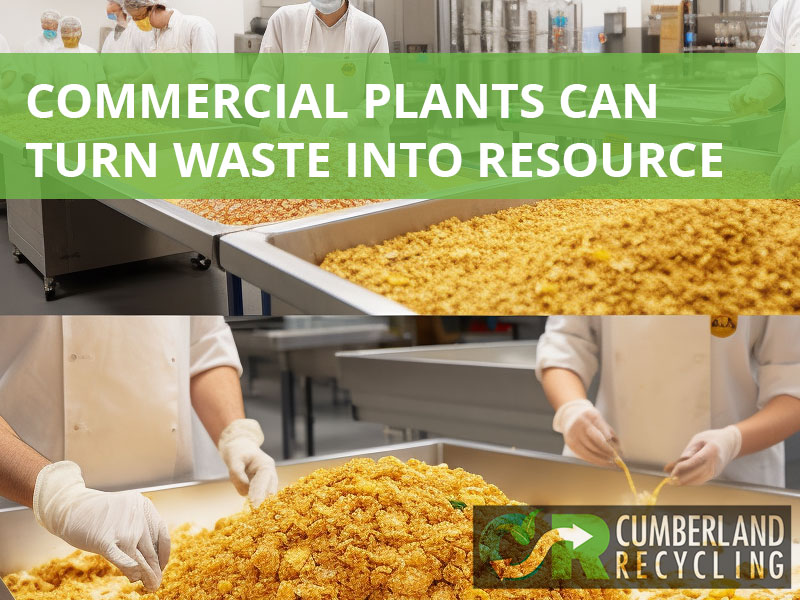One element often remains hidden in the sprawling expanse of commercial food production: waste. But what if that very waste could be transformed? What if food waste wasn’t seen as discarded remnants but a valuable resource waiting to be harnessed? As it turns out, many manufacturing plants are catching on, and in the journey of sustainable revolution, one name consistently outshines the rest – Cumberland Recycling.
Let’s begin with some perspective. Every year, large food manufacturing plants discard tons of waste. These are the unseen side effects of our food consumption, the remnants of production that don’t make it to our plates. While the environmental toll is evident, the opportunity within this challenge is fascinating.
Converting Food Waste Into Energy
Imagine converting food waste into energy. Picture that waste enriching soils as organic compost or nourishing animals as feed. This isn’t a distant dream. It’s happening now. And driving this shift are companies like Cumberland Recycling.
So, how does Cumberland stand apart in this recycling renaissance?
For starters, their approach to recycling food waste is holistic. They don’t just see waste as something to manage. Instead, they view it as a resource to repurpose, a material with untapped potential. This innovative perspective makes them a beacon in the industry, guiding others toward more sustainable practices.
Now, one might wonder, with so many players in the recycling domain, what makes Cumberland unique? A visit to this link offers a hint. Among the top leaders in the commercial recycling realm, Cumberland’s approach, dedication, and results truly set them apart. They walk the talk and ensure that their strategies bring tangible benefits to the partnering manufacturing plants.
But why should a manufacturing plant consider recycling food waste seriously?
- Economic Benefits: The costs tied up in waste management can be significant. Recycling, especially with a trusted partner like Cumberland, often proves more cost-effective in the long run.
- Environmental Responsibility: With the climate crisis at our doorstep, every step towards sustainability counts. Recycling food waste directly reduces landfill contributions, making a significant positive environmental impact.
- Enhanced Brand Image: Today’s consumers are savvy. They prefer brands that care and make an effort to be environmentally responsible. By adopting sustainable practices, companies can enhance their brand image and appeal to a more eco-conscious customer base.
Redefining Food Production
Now, let’s reanalyze our primary focus, Redefining Food Production. The essence of this term isn’t just about how we produce food but also how we manage its entire lifecycle. It’s about viewing every element, including waste, as a part of a more extensive system that can be efficient, sustainable, and revolutionary.
In conclusion, the commercial food manufacturing landscape is on the brink of a significant shift. The waste produced isn’t just a challenge; it’s an opportunity. And with industry leaders like Cumberland Recycling at the helm, the journey from waste to resource is possible but also profitable and sustainable. The message is evident as the tide turns in food production: it’s time to redefine.

